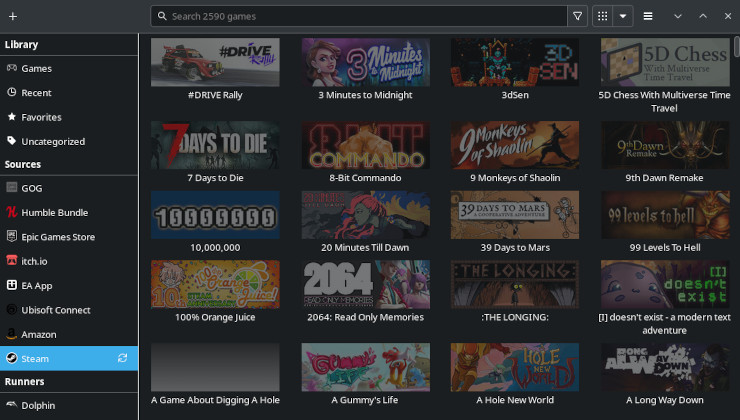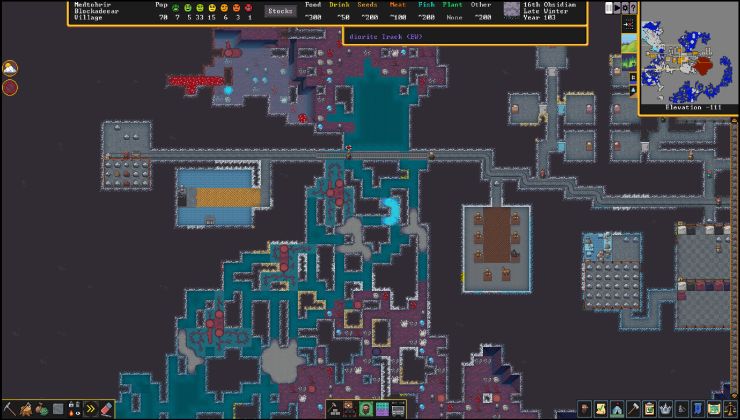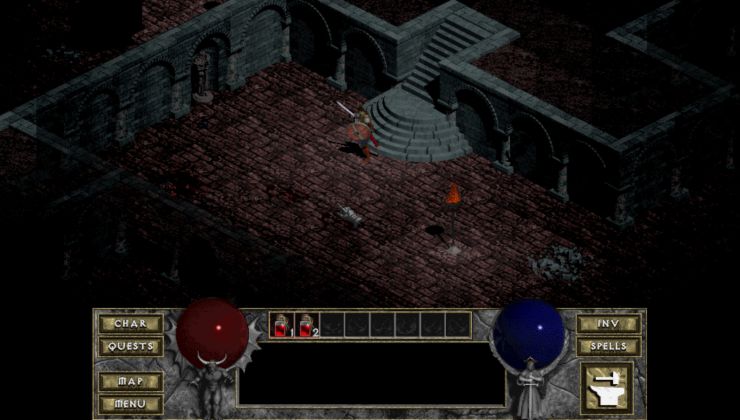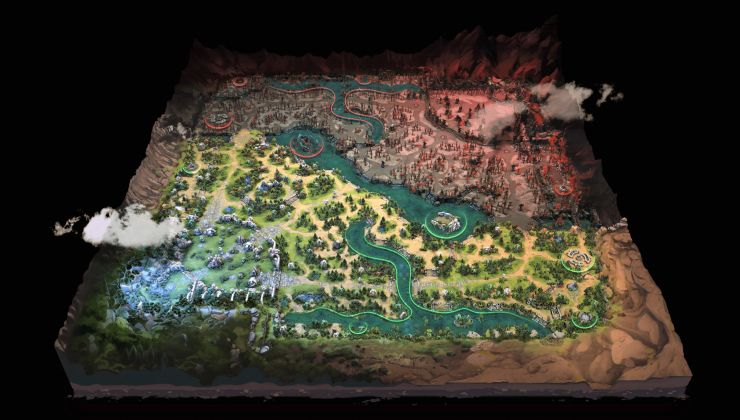Out of the box, the Steam Deck comes with SteamOS 3 Linux and overall apart from early quirks and bugs it does work very well but they're now providing Windows drivers — with a big caveat.
This was announced on Steam today, for those who do want to put up with Windows (not me). There's a few notes they included on it but the biggest and most important is that Valve will not actually be supporting Windows on Deck in any way. It was put very clearly as Valve said "we are providing these resources as is and are unfortunately unable to offer 'Windows on Deck' support".
People are free to do what they want with it, unlike more traditional "consoles" but the point is that for official support, you need to use SteamOS.
The quick notes Valve included:
- For now you can only perform a full Windows install. While Steam Deck is fully capable of dual-boot, the SteamOS installer that provides a dual-boot wizard isn't ready yet.
- Also for now, you can only install Windows 10. Windows 11 requires a new BIOS that is currently in the pipe (which provides fTPM support) and will be shipping soon.
- Drivers are provided for GPU, WiFi, and Bluetooth. Audio drivers are still in the works with AMD and other parties - but you'll still be able to use Bluetooth or USB-C audio with Windows on Deck.
The TLS stuff is weird as I can access it fine with FireDragon (a Librewolf fork)Do you have a link how to do this?
Here ya go:
https://www.geeks.lgbt/diy-steamos-3-0/
Do the last two steps (opt in to beta and pass
-gamepadui to steam)
Thanks
Though my Firefox doesn't want to load this as they don't support TLS 1.2. :-/
This is how you should opt in to beta:
echo "steampal_stable_9a24a2bf68596b860cb6710d9ea307a76c29a04d" > ~/.steam/steam/package/beta
Well, for the moment. It will bitch at you every so often forever that you chose the wrong option and should consider doing it their way.Not to mention that, last time I installed Windows 10 for a test for someone, it took more than an hour to finally get to the desktop. Linux install, on the same PC, took 10 minutes.
It's amazing how shitty Windows can be.
... and you've got loads of productive software on Linux after this install.
And oh my god, the annoying questions about privacy at the beginning... xD
That's an easy one though ;) : Change every single option and you're fine.
First they ignore you,
Then they laugh at you,
Then they fight you,
Then they must wait for audio drivers to be released to run Windows on the Deck.
What an incredible 31 years journey has been!
Even Windows (Other) OS support not on Valve. Someone will jump on and say "but it is PC"... Most Microsoft Surface "tablets" just another pc/laptop hardware with MS Windows log on them, same goes with previous Apple laptops/workstations. Other OS support, for some reason, taken care by Linux/BSD folks not Microsoft or Apple. "Most sales on Windows" some one will say. Microsoft (Windows OS) making PC/laptops more and more like XBox One always-online DRM boxes and it will (may) bite 3rd party software dev (Steam for e.g.) and other user in the ass.
"We don't support that OS you will have to rely on third party support or write your own"
I know Windows has a reputation for slowing down over time—primarily due to its dated filesystem—but I wonder if this is still true. Windows as of late seems to be more well-optimized for older hardware.
It's generally seemed to me that the primary reason for the slowdown of Windows over time is registry cruft (at least since Windows 2000 and its automatic defragmentation).
Be that as it may, Windows 10 deals with low powered CPUs significantly better than Windows 7 does. However, for some reason it deals with limited memory worse than 7 (for example, 7 works significantly better with 2 GB of RAM than Windows 10) and it requires more disk space than 7.
Last edited by CFWhitman on 11 Mar 2022 at 9:37 pm UTC
I know Windows has a reputation for slowing down over time—primarily due to its dated filesystem—but I wonder if this is still true. Windows as of late seems to be more well-optimized for older hardware.
It's generally seemed to me that the primary reason for the slowdown of Windows over time is registry cruft.
It's long time ago that I had the feeling that Windows would get slower over time. Didn't ever measure, but if it still is, it's at least not hindering me. (Doing work, software development, on Windows 10.)
"All you have to do is edit the registry here, disable that, edit that thing, return in the registry, download and install drivers". And all the while reboot, reboot, reboot!
I have to put 30-45 mins just to hack and configure through the OS to make it run like I want and I didn't include the initial update process... "I'm to old for that sh&t!"
"When it comes to Linux, 10 mins, fully updated and Steam is fired...
And they say Linux is a rabbit hole...
That's when I realized that Windows wasn't for me anymore.
Last edited by Mohandevir on 11 Mar 2022 at 9:43 pm UTC
It's generally seemed to me that the primary reason for the slowdown of Windows over time is registry cruft (at least since Windows 2000 and its automatic defragmentation).This is probably more accurate. Though I still remember defragmentation improving speeds a few years ago.
Be that as it may, Windows 10 deals with low powered CPUs significantly better than Windows 7 does. However, for some reason it deals with limited memory worse than 7 (for example, 7 works significantly better with 2 GB of RAM than Windows 10) and it requires more disk space than 7.
I'd guess that Windows 10 wasn't targeting older hardware and was instead making allowances for budget processors like Celeron. I don't think any modern laptops ship with less than 4GB of RAM. Of course, it could be that because Windows doesn't work well with less than 4GB, laptops don't ship with less than that.
I'd guess that Windows 10 wasn't targeting older hardware and was instead making allowances for budget processors like Celeron. I don't think any modern laptops ship with less than 4GB of RAM. Of course, it could be that because Windows doesn't work well with less than 4GB, laptops don't ship with less than that.
I think you are correct. However, some OEMs did ship what were basically netbooks with Windows 10 and 2 GB of RAM (soldered), and these are not fun to use. They can be good candidates for a Linux install, since most Linux distributions handle 2 GB of RAM pretty well.
[…]drive people out of windows is not Valve's goal in anyway[…]Yes, it really is. Valve [have basically said this](https://www.pcworld.com/article/394953/why-does-the-steam-deck-run-linux-blame-windows.html) on multiple occasions, and their actions back it up. Microsoft could, at any time, change to a closed system where Steam doesn't run and cut off ~95% of their revenue; every Linux or Mac gamer (or simply "gamer not exclusively on Windows") is a hedge against this possibility. Whether or not Microsoft will ever do this is another discussion, but Valve clearly feel existentially threatened by this fact, and have since the release of Windows 8. They've been working for around a decade on getting gamers off of Windows so that they're no longer dependent on Microsoft. They're also a small company, and don't have unlimited resources; they're putting out Windows drivers to support their "it's just a portable PC!" talking point, but they're not going to spend a single minute more than they have to supporting Windows when Steam OS still needs work.
Installing Windows in 2022 on the Steamdeck is like installing Linux 10-15 years ago. Some parts work, some don't.Also, exactly like installing Windows 10-15 years ago. Like 2 or 3 comments above you just said most people have no idea how difficult it can be to do a clean install of Windows especially with a retail disc and not an OEM disc. Especially 15-20 years ago!
a.) I cannot recall saying that
b.) True, you need(ed) to install some drivers yourself also on Windows. But there is official support from the vendors, you can download a file and install it. This was not the case for linux. If something did not work out of the box you knew you are in for a ride. Either you found some guide to install the driver (which you might need to repeat every kernel update..) or: sorry no WiFi for you.
Read the whole article you've linked, and couldn't find any claim of that, actually it's more similar to what I've said in my answer to purple guy:[…]drive people out of windows is not Valve's goal in anyway[…]Yes, it really is. Valve [have basically said this](https://www.pcworld.com/article/394953/why-does-the-steam-deck-run-linux-blame-windows.html) on multiple occasions,and their actions back it up.
for not being dependent from other company decisionsAll this effort is Valve driving out themselves from Microsoft system, not it's users, I know it may sound weird but there's a difference on that. If the goal of Valve was to "Defeat evil Windows by making Linux to rise as the supreme OS on desktop" like some passionate linux users seems to think (not talking about you of course), they could simply stop supporting their steam windows client and tell everyone to install linux (or only steamOS) to keep using steam. Of course they will never do this because they would only lose a lot of money/user base and would open a "power vacuum" on windows gaming scenario for a competitor to fill.
Microsoft could, at any time, change to a closed system where Steam doesn't run and cut off ~95% of their revenue; every Linux or Mac gamer (or simply "gamer not exclusively on Windows") is a hedge against this possibility. Whether or not Microsoft will ever do this is another discussion,
Microsoft may be greedy and rely on shady practices but they aren't stupid, they know there's no scenario nowadays where they can succeed forcing lock in practices on desktop like they tried to do back to win 8 years (or like they succeed back in the 90's). Valve efforts with SteamOS and the backlash of other fronts made sure they learnt this lesson. Nowadays It's more likely to see Microsoft software running in other systems than they pushing out third party software out of their systems, for example .NET becoming open source was a consequence of they realizing that they would start to lose market if they kept lock in practices in scenarios where are already strong competitors (like game stores).
Nowadays Microsoft EEE stands for: Embrace, Extend, Embed.
but Valve clearly feel existentially threatened by this fact and have since the release of Windows 8.
Yes
They've been working for around a decade on getting gamers off of Windows so that they're no longer dependent on Microsoft.string gamers = "themselves";
They're also a small company, and don't have unlimited resources; they're putting out Windows drivers to support their "it's just a portable PC!" talking point, but they're not going to spend a single minute more than they have to supporting Windows when Steam OS still needs work.Valve is in no way a "small company" they're the owner of the current biggest game store on the planet, to the point of steam being the synonym of "PC gaming" for a lot of people, they're to game store scenario what windows is to desktop os, and here is where I want to make the point.
Windows(OS) and Steam(client) aren't necessary direct competitors, simple because Valve (steam) profits whenever you are buying to play on Windows / MacOS / Linux, and Valve doesn't need to "spent" a penny on driver support because Microsoft will mostly take care of that. Why would they do this you may ask? Because for Microsoft is "bad" if people don't install Windows on Deck, but for Valve is "good" to have both systems supported because their profit comes from steam (client) and hardware sells (deck), and not from SteamOS, that only serve as a mean to be independent from Microsoft/any other company and to not be bound to software limitations on their hardware.
The only case I can think of Deck support windows being "bad" for Valve is if Microsoft does this while also pushes they own store (or a competitor), otherwise it's a win/not lose situation to them.
To conclude my point of view: People dropping Windows in favor of Linux might be a consequence of those efforts but not Valve's main goal.
[https://www.youtube.com/watch?v=uNt_ReLwk40](https://www.youtube.com/watch?v=uNt_ReLwk40)
And LTT is out with a video on exactly how horrible Windows is on the deck right now:
[https://www.youtube.com/watch?v=uNt_ReLwk40](https://www.youtube.com/watch?v=uNt_ReLwk40)
Oh how the tables have turned !
And LTT is out with a video on exactly how horrible Windows is on the deck right now:Huh. It references GoL at about the 15 minute mark. Specifically, mentions and briefly shows a screenshot of Ethan Lee's article critiquing Valve's Steam Deck verification process.
[https://www.youtube.com/watch?v=uNt_ReLwk40](https://www.youtube.com/watch?v=uNt_ReLwk40)
Yes, they haven't said it as many words, but it's pretty obvious when taken in the context of what Valve has been doing for the last decade or so. It's a [difference without a distinction](https://en.wikipedia.org/wiki/Distinction_without_a_difference); there's no point in Valve getting themselves out of Microsoft's system if their users don't come with them. Steam runs on MacOS and Linux, so Valve are already out of Microsoft's system and have been for a decade…except that fact means nothing to them as long as ~95% of gamers are still on Windows.Read the whole article you've linked, and couldn't find any claim of that, actually it's more similar to what I've said in my answer to purple guy:[…]drive people out of windows is not Valve's goal in anyway[…]Yes, it really is. Valve [have basically said this](https://www.pcworld.com/article/394953/why-does-the-steam-deck-run-linux-blame-windows.html) on multiple occasions,and their actions back it up.
for not being dependent from other company decisionsAll this effort is Valve driving out themselves from Microsoft system, not it's users, I know it may sound weird but there's a difference on that.
If the goal of Valve was to "Defeat evil Windows by making Linux to rise as the supreme OS on desktop" like some passionate linux users seems to think (not talking about you of course), they could simply stop supporting their steam windows client and tell everyone to install linux (or only steamOS) to keep using steam. Of course they will never do this because they would only lose a lot of money/user base and would open a "power vacuum" on windows gaming scenario for a competitor to fill.Of course they can't just stop supporting Steam on Windows, because that would financial suicide. And while I'm not pretending Valve are infallible or always make the best decisions (they don't, just to be clear), they're not that stupid. They know that they can't get gamers away from Windows with the stick when those gamers make up ~95% of their customers, so they are instead employing the carrot: providing something their customers want (a portable, affordable gaming PC) while introducing those customers to an alternate operating system, showing them that it isn't just the realm of techno-nerrrrds anymore but can actually be used by the average consumer. And hopefully (from Valve's perspective), that exposure will—over time—start to slowly wean people away from Windows.
I doubt Valve's goal is to someday have zero Windows users, but I bet they won't begin to truly relax until Windows makes up no more than maybe ~half their users.
Microsoft may be greedy and rely on shady practices but they aren't stupid, they know there's no scenario nowadays where they can succeed forcing lock in practices on desktop like they tried to do back to win 8 years (or like they succeed back in the 90's). Valve efforts with SteamOS and the backlash of other fronts made sure they learnt this lesson. Nowadays It's more likely to see Microsoft software running in other systems than they pushing out third party software out of their systems, for example .NET becoming open source was a consequence of they realizing that they would start to lose market if they kept lock in practices in scenarios where are already strong competitors (like game stores).I actually agree with you that I don't think Microsoft nowadays would suddenly pull an Apple and close off Windows, but the important thing is not reality, it's Valve's perception of reality, and they're clearly still scared of this possibility. *shrug*
Nowadays Microsoft EEE stands for: Embrace, Extend, Embed.
but Valve clearly feel existentially threatened by this fact and have since the release of Windows 8.
Yes
Like I said, Valve have been "off Windows" since Steam was released for MacOS in 2010. They still seem pretty interested in getting gamers off Windows though… (see: Steam Machines, Steam OS, Proton, etc., etc.)They've been working for around a decade on getting gamers off of Windows so that they're no longer dependent on Microsoft.string gamers = "themselves";
Valve is in no way a "small company" they're the owner of the current biggest game store on the planet, to the point of steam being the synonym of "PC gaming" for a lot of people, they're to game store scenario what windows is to desktop os, and here is where I want to make the point.Valve has ~360 employees according to Google, which is almost ludicrously tiny for a global operation that services tens of millions of people daily on three operating systems. It doesn't matter how much money they have or how big their market share is, they can't just write a check for a million dollars and *poof* Windows support into place: it require effort from human beings, and Valve doesn't have a spare team of 200 people lying around to throw at problems. With how many updates Steam OS has been getting (and how fast some fixes have come out), they probably don't have a single person to spare at the moment. That'll change down the road, of course, as Steam OS matures and they're aren't in crisis mode trying to patch it, but that could be months, and since it's in their long-term interests to have as many people using Steam OS as possible I highly doubt they're going to be prioritizing Windows support.
Windows(OS) and Steam(client) aren't necessary direct competitors, simple because Valve (steam) profits whenever you are buying to play on Windows / MacOS / Linux, and Valve doesn't need to "spent" a penny on driver support because Microsoft will mostly take care of that. Why would they do this you may ask? Because for Microsoft is "bad" if people don't install Windows on Deck, but for Valve is "good" to have both systems supported because their profit comes from steam (client) and hardware sells (deck), and not from SteamOS, that only serve as a mean to be independent from Microsoft/any other company and to not be bound to software limitations on their hardware.I agree that Windows working on the Deck is not a bad thing for Valve in the short run, and they're not going to, like, sabotage it or anything, but it is a bad thing (in their view) for the long run, since the whole point of putting Steam OS on the Deck is getting people off of Windows. Valve are clearly in this for the long haul (see: the last decade of things they've been doing), so it doesn't make much sense for them to suddenly lose sight of the long-term goal to pursue a short-term gain.
The only case I can think of Deck support windows being "bad" for Valve is if Microsoft does this while also pushes they own store (or a competitor), otherwise it's a win/not lose situation to them.
(On a tangent, people talk about Valve's short attention span, but they've clearly been pursuing this for quite a few years at this point—I think it's less that they have a short attention span and more that they're willing to drop things quickly and try again if they don't pan out, which, if not taken in the context of their long-term goals, might look like random waffling.)
To conclude my point of view: People dropping Windows in favor of Linux might be a consequence of those efforts but not Valve's main goal.And here we may just have to agree to disagree, because I just don't see another logical explanation for the aggregate total of Valve's actions over the course of the past decade than trying to move people off of Windows. If they didn't care about people being on Windows, the Steam Deck would simply come with Windows and be $X dollars more expensive (or they'd eat the costs and make it up in game sales). Valve have invested literal years of effort and tons of money into enabling tens of thousands of games to be playable on Linux, despite Linux gamers making up a tiny fraction of their revenue (I don't know the exact number, but I think from various people reporting on their games it's no more than ~5% at most). Why? They could have spent those resources any number of ways, such as making Steam better for the other ~99% of their customers, or on new games they could sell for even more money. They have poured resources into Linux support way out of proportion to how much money Linux users bring them—not out of the goodness of their hearts, but because they think it's important. Again, why? Why is it important to Valve that people are able to play games on Linux? Because Linux is an open ecosystem where they don't have to worry about being locked out. (Sure, Microsoft seems unlikely to do that now, but who's to say what a new CEO does in ten years time? It was only a decade ago that it seemed plausible that Windows might get locked down, after all…)
All of that is theoretical, though, if 99% of their userbase is not on Linux; they're still in the same boat of being dependent on Microsoft. And since even moving their entire MacOS userbase to Linux would still leave them ~95% dependent on Windows, the inexorable conclusion is that Valve really, really, want to migrate users from Windows* to Linux to protect themselves.
*Or MacOS, I'm sure they're not picky.
And LTT is out with a video on exactly how horrible Windows is on the deck right now:Huh. It references GoL at about the 15 minute mark. Specifically, mentions and briefly shows a screenshot of Ethan Lee's article critiquing Valve's Steam Deck verification process.
[https://www.youtube.com/watch?v=uNt_ReLwk40](https://www.youtube.com/watch?v=uNt_ReLwk40)
I'll bet that was the work of Anthony.










 How to set, change and reset your SteamOS / Steam Deck desktop sudo password
How to set, change and reset your SteamOS / Steam Deck desktop sudo password How to set up Decky Loader on Steam Deck / SteamOS for easy plugins
How to set up Decky Loader on Steam Deck / SteamOS for easy plugins
See more from me